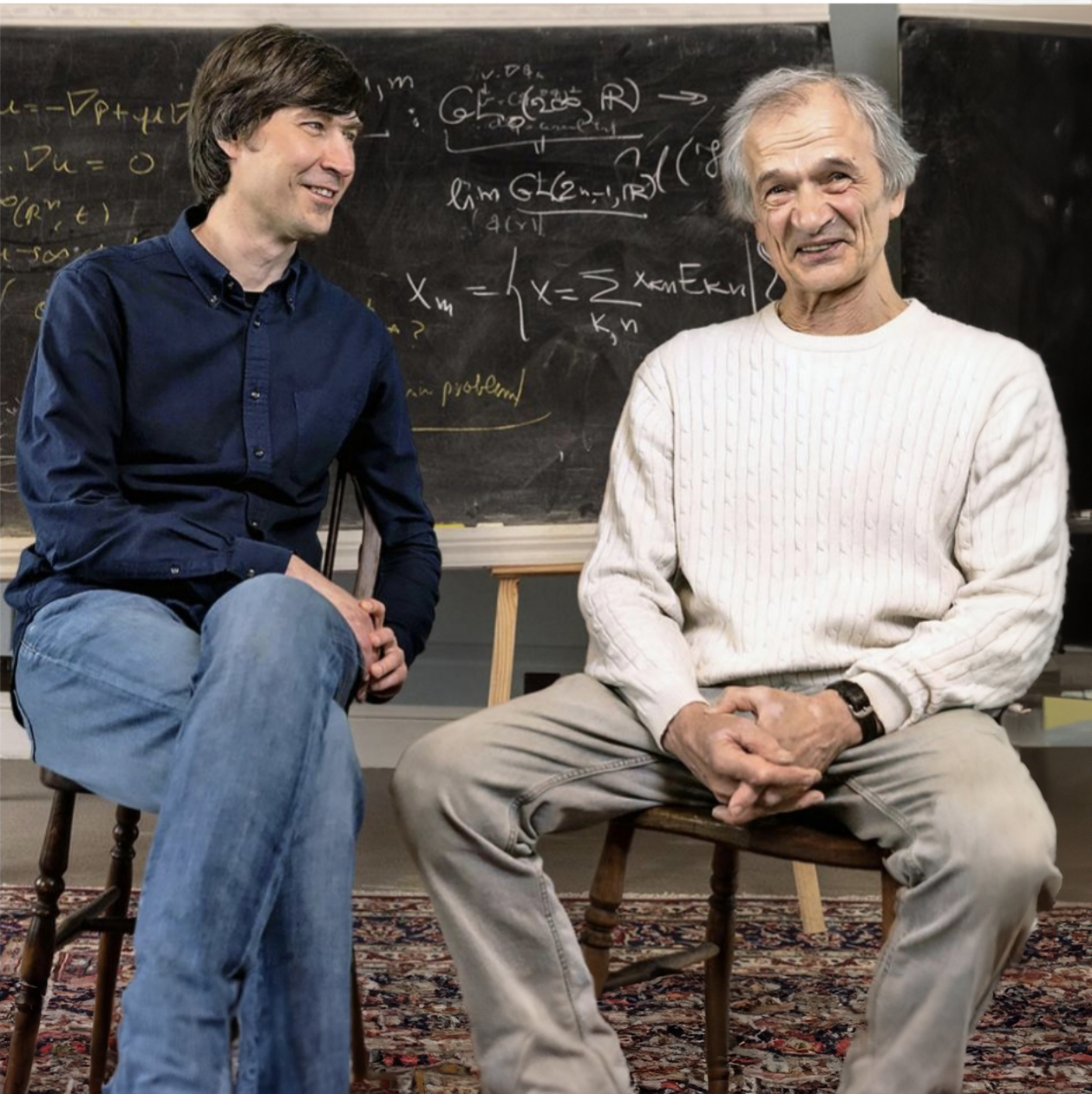The language of maths
THE TIMES, 22 May
Tom Whipple of The Times explains how, thanks to our Arnold and Landau Fellowships, theorists divided by war find a common denominator.
Oleksandr Kosyak is used to imagining improbable relationships. That is, after all, what group theorists do. His is a world of transformations in infinite dimensional spaces, of operations and interactions between abstract objects.
Even so, Kosyak, a Ukrainian, struggles when considering the improbability of one less-abstract relationship: the one he is to have with his new Russian colleagues. “In Ukraine a lot of people don’t like Russians,” he says. “But you can also imagine . . . ” he chooses his words, “. . . adequate . . . Russians.”
Kosyak, 67, is very smiley and he is smiling now. Equally, his response is not completely without an edge.
Sitting on a sofa in London, a year after he fled Kyiv, he is the beneficiary of a fellowship programme set up, in part, to support outstanding Ukrainian physicists and mathematicians.
Sitting next to him is another beneficiary of the scheme. Mikhail Burtsev, though, is a Russian. When the Ukraine war began, like many organisations, the London Institute for Mathematical Sciences wondered what it could do to help Ukrainians. Unlike many organisations it also wondered what it could do to help Russians.
“When you see somebody whose life is in chaos and they can’t practise their craft — they can’t set the world record they were born to set — you offer sanctuary,” Thomas Fink, the director of the institute, says. “There is a long tradition of great nations absorbing talent in troubled times.”
For him, then, it seemed obvious that the mathematicians on both sides were in need. It also seemed obvious that helping them was very different from helping Russia itself. But, he confesses: “It was not clear what the public sentiment would be.”
So there was a certain amount of trepidation when they created the Arnold and Landau Fellowships, funding positions for ten theorists for three years from Ukraine, Russia and Belarus. Now the ten places are starting to fill up in the institute’s offices on the second floor of the Royal Institution and the test is not just of the public sentiment. Fifteen hundred miles away Kosyak and Burtsev’s countrymen face off over trenches. Here they meet over blackboards.
How will they feel when the summer’s offensives begin in Ukraine? How will they cope with the chaos and national hatreds yet to come? The question is easier for Kosyak. Here, in friendly Britain, he can openly support his friends and family back home. Burtsev is understandably more reticent.
For him Britain is an escape from academic purgatory. “It is very depressing. When everything happened I understood I could not do global science. I also did not want to participate . . . we are united by our hatred of war.”
The London Institute is a new organisation modelled on America’s Institute for Advanced Study, where Einstein spent the latter half of his career. Its goal is to allow academics the space to work without the bureaucracy and responsibilities of a university. New recruits are encouraged to bring mugs from their past institutions. On a shelf by the coffee machine you can choose from Caltech, Stanford, Princeton, UCL, MIT and KCL.
These institutions are not merely the places the London Institute’s scientists come from. They are also their competition. So if you are a young, nimble, less well-known organisation, you take your opportunities. Fink is unapologetic: their scheme is not merely altruistic. “Obviously, this is about offering sanctuary but it is also a chance for us to get more talented people than we would ever otherwise get,” he says. “Look at the 1930s, at the legacy of the Jewish refugee scientists in Britain and America: it’s just off the charts. We are getting superstars.”
Standing by a blackboard Kosyak and Burtsev, two of those superstars, discuss some equations. They do so in Russian, a language they share. They also do so in a shared language they are even more fluent in: mathematics.
Burtsev has been here six months, Kosyak only a week after a year spent moving around Europe. As a nation, says Kosyak, it will be “generations” before Ukraine can forgive Russia. But as individuals? Perhaps, over equations and academic sanctuary, he can find the “adequate” ones.
Tom Whipple is Science Editor of The Times.




LCP











